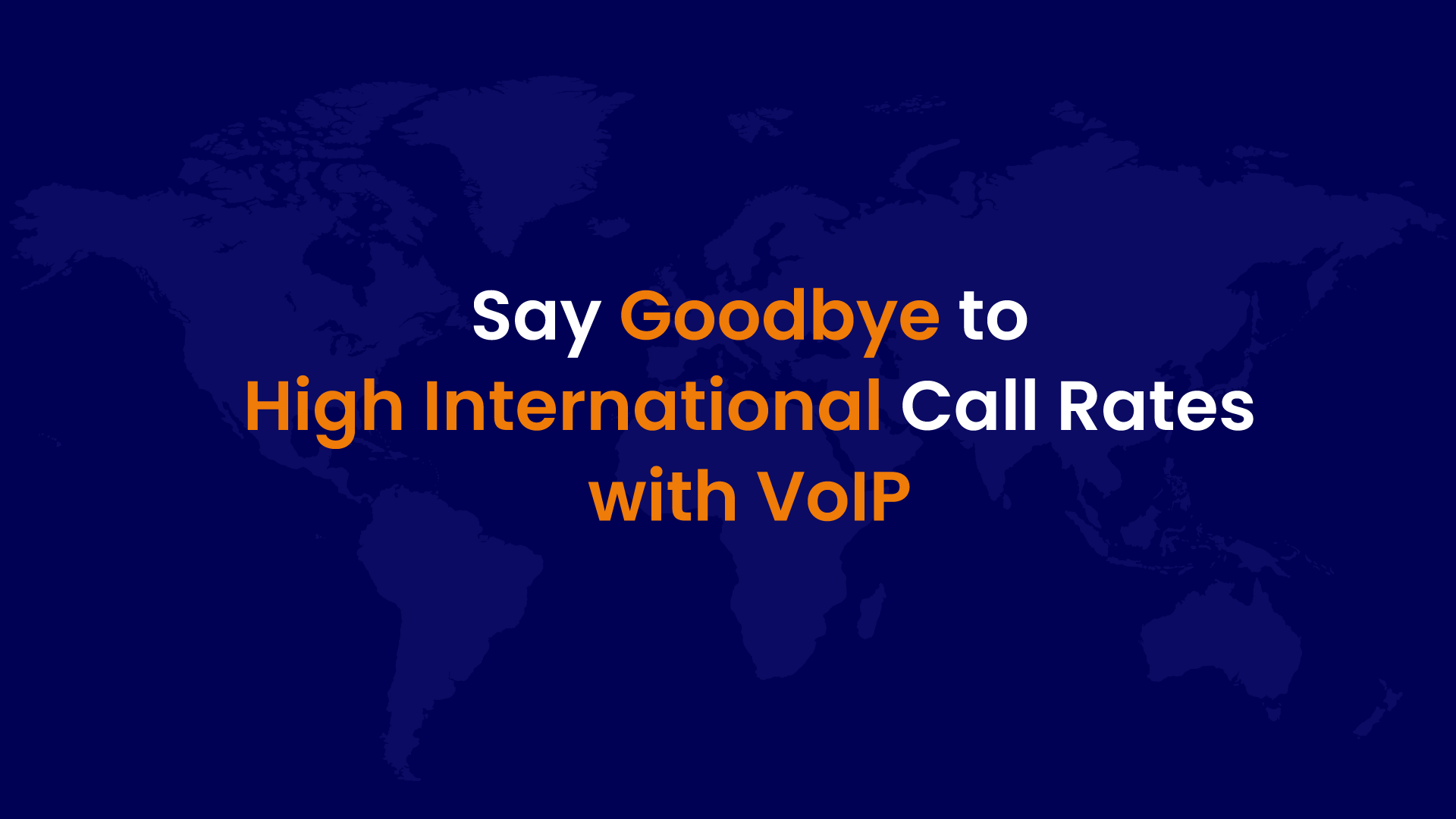Table of Contents
1. What is International Calling, and why is it Important for Businesses?
International calling service is the ability to make voice or video calls to contacts in other countries. For businesses, international calling is crucial for expanding their reach, serving global clients, and maintaining communication with international partners and teams.
2. How Can International Calling Benefit My Business?
International calling can significantly benefit your business by expanding its global reach. This enhanced communication can lead to increased sales, improved customer service, and the opportunity to tap into new markets, ultimately contributing to business growth and success. International calling can benefit your business in several ways.
Global Expansion: It allows you to tap into international markets and connect with customers and partners worldwide.
Client Support: You can provide excellent customer service by offering international support lines, and ensuring customer queries are addressed promptly.
Collaboration: International calling fosters seamless communication with international teams and partners, enhancing collaboration on projects and business operations.
Cost Savings: Choosing the right international calling plan or service can help your business save on communication expenses.
3. What are the Cost Considerations for Businesses when Making International Calls?
The cost of international calls for businesses can vary based on factors such as the service provider, destination country, and calling plan. It’s crucial for businesses to assess their international calling needs and find cost-effective solutions that align with their communication budget.
4. How Can Businesses Reduce International Calling Costs?
To reduce international calling costs, businesses can employ various strategies. One effective approach is to choose cost-effective international calling plans offered by service providers. Implementing Voice over Internet Protocol (VoIP) solutions can also lead to significant savings, as they often offer more competitive rates compared to traditional phone services. Additionally, encouraging the use of Wi-Fi networks for international calls and exploring international calling cards can further minimize expenses, allowing businesses to maintain effective global communication while managing their budgets. Businesses can reduce these calling costs through various strategies.
International calling plans: Select a service provider that offers competitive international calling plans tailored to your business needs.
VoIP solutions: Implement Voice over Internet Protocol (VoIP) solutions for international calling, which are often more cost-effective than traditional phone services.
International calling cards: Consider using international calling cards for employees who frequently make international calls. These cards can offer discounted rates.
Wi-Fi calling: Encourage employees to use Wi-Fi networks for international calls to minimize data charges.
5. What’s the Difference Between International and Domestic Calling for Businesses?
Domestic calling involves communication within the same country, while international calling connects businesses with contacts in other countries. The primary distinction lies in the infrastructure, tariffs, and agreements involved, with international calls typically incurring higher costs.
6. Do Businesses Need Specialized Phones for International Calling?
In most cases, businesses do not need specialized phones for international calling. Standard business phones and communication systems can handle international calls. However, businesses must have an international calling plan or service activated with their provider.
7. Can Businesses Make International Calls from their Office Phone Systems?
Yes, businesses can make international calls from their office phone systems. Many modern office phone systems are equipped to handle international calls. It’s essential for businesses to work with their phone service provider to ensure that international calling is properly configured for their office phone systems.
8. What are the Time Zone Considerations for International Calling in a Business Context?
Time zones can significantly impact international business communication. It’s crucial for businesses to be aware of time zone differences when scheduling international calls to ensure they are convenient for all parties involved. Coordination tools and scheduling apps can assist in managing time zone differences.
9. How Does International Roaming Apply to Business Communication?
International roaming allows business travellers to use their mobile phones in foreign countries. It’s vital for businesses to understand international roaming rates, data charges, and voice call costs when employees travel abroad for work. Setting up international roaming plans or purchasing local SIM cards can be cost-effective solutions.
10. Can Businesses Make International Calls for Free Using VoIP Services?
Some VoIP services offer free international calling options, but they typically require an internet connection and that both parties have the same VoIP app installed. While free international calling can be advantageous for businesses, it’s important to consider factors like call quality and data security.
11. How Can Businesses Set Up International Calling for Their Office Phone Systems?
- To set up international calling for office phone systems:
- Contact your phone service provider to discuss international calling options.
- Choose an appropriate international calling plan that suits your business needs.
- Ensure that your office phone system is configured to make international calls.
- Educate employees on how to use the international calling features of the office phone system.
12. What are the Advantages of Using VoIP for International Calling in a Business Context?
VoIP offers several advantages for international business calling:
Cost-Effectiveness: VoIP is often more affordable than traditional phone services, reducing international calling expenses.
Feature-Rich: VoIP services provide features such as video conferencing, call forwarding, and voicemail, enhancing business communication.
Scalability: VoIP can easily scale with business growth, making it suitable for businesses of all sizes.
Global Connectivity: VoIP allows businesses to connect with international clients and partners, promoting global business growth.
13. What Limitations Should Businesses Be Aware of When Using VoIP for International Calling?
While VoIP is a valuable tool, businesses should be aware of the following limitations:
Internet Dependence: VoIP relies on a stable internet connection, so a poor connection can result in reduced call quality.
App Compatibility: Both parties must have the same VoIP app for free international calling to work, which may not always be feasible.
Emergency Calls: VoIP services may not support emergency calls in some regions, so businesses should have alternative means of emergency communication in place.
14. How Can Businesses Ensure the Security of International Business Calls?
To ensure the security of international business calls, businesses should:
Implement Encryption: Use encryption technologies to protect the confidentiality of international calls.
Use Reputable Providers: Select trusted and established service providers for international calling to minimize security risks.
Educate Employees: Train employees on best practices for secure international calling, including avoiding unsecured Wi-Fi networks and understanding data security.
15. What are The Considerations for Businesses When Choosing an International Calling Service Provider?
When selecting an international calling service provider, businesses should consider:
International call rates: Compare rates for different countries to ensure cost-effectiveness.
Service reliability: Choose a provider known for reliable connections and call quality.
Customer support: Assess the provider’s customer support and responsiveness to address issues promptly.
Scalability: Ensure that the provider can accommodate your business’s growth.
Security measures: Inquire about the security measures in place to protect your international calls.
Compatibility: Verify that the provider’s services are compatible with your existing phone systems and communication infrastructure.
This comprehensive set of FAQs should help businesses understand the intricacies of international calling, how it can benefit their operations, and the cost-effective solutions available to enhance global communication.






